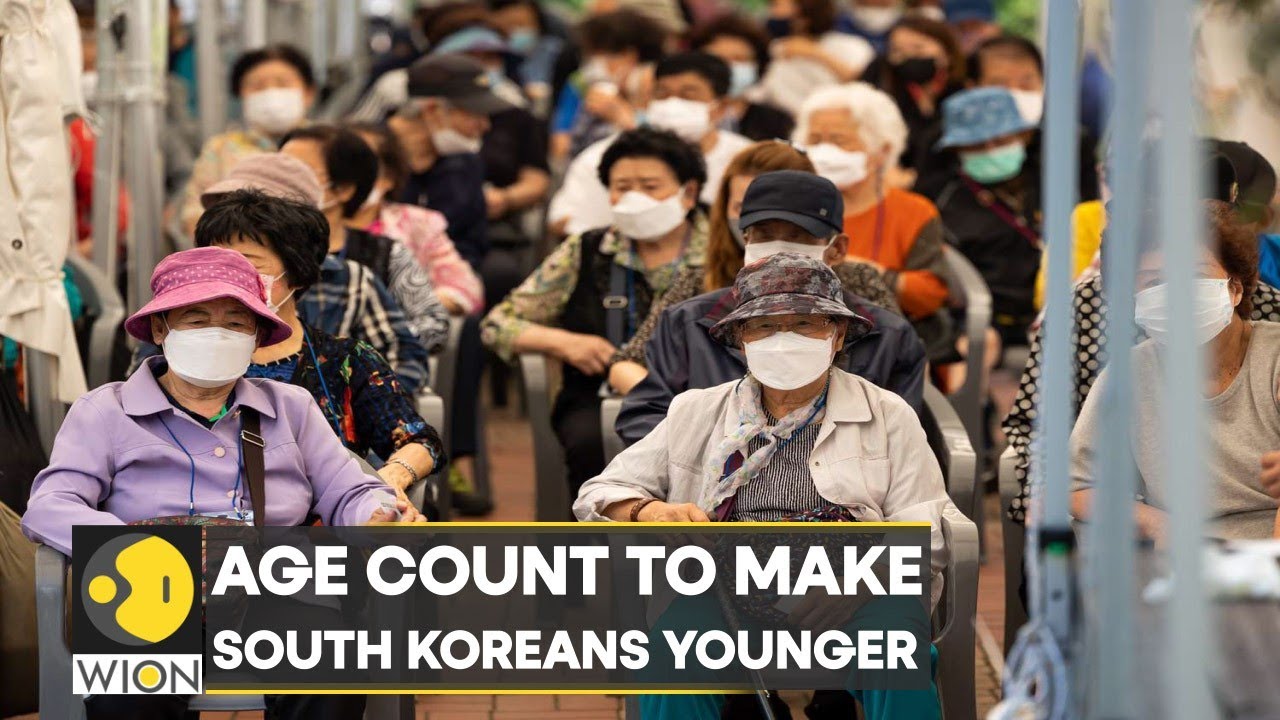All South Koreans To Become Younger As Traditional Age System Scrapped
It is common for South Koreans to have three ages: an international age, a Korean age, and a "calendar age." But to end the confusion, the country's parliament has decreed that from June 2023 and all South Koreans to become younger as the traditional age system scrapped, therefore all official documents must use the standard age.
Author:Dexter CookeReviewer:Hajra ShannonDec 12, 20222K Shares298.5K Views

It is common for South Koreans to have three ages: an international age, a Korean age, and a "calendar age." But to end the confusion, the country's parliament has decreed that from June 2023 and all South Koreans to become younger as the traditional age system scrapped, therefore all official documents must use the standard age.
This decision, which comes after a lengthy debate, will bring the country in line with the majority of the rest of the world and reduce legal discrepancies caused by the use of three different systems.
In South Korea, a person's "international age" refers to the number of years since birth and begins at zero, as in most other countries.
South Korea Passes New Law Making Everyone Younger

South Koreans will become younger by the summer of 2023 | International News | English News | WION
South Koreans are getting younger as the rest of the world ages. South Korea's parliament passed legislation abolishing the traditional method of calculating ages, making everyone in the country a year or two younger beginning in June 2023.
People in South Korea, unlike the rest of the world, start at 1 and gain another year on New Year's Day. South Koreans commonly refer to their "Korean age" in everyday conversation, and this is reflected in many government documents.
When the new laws go into effect, everyone will be required to use the international standard, which starts people at zero on the day they are born, on official documents. South Korean President Yoon Suk-yeol campaigned on the change, claiming that the country's continued use of Korean ages imposed unnecessary social and economic costs.
South Korea has used international standards for calculating ages for medical and legal documents since the 1960s. The Korean age system, on the other hand, is used to determine who is old enough to drink, smoke, or be conscripted into the army.
When the law goes into effect, the legal drinking age of 20 will be reduced to 19, effectively staying the same but reflecting the transition to international age standards.
The Consequences Of The New Law
The change will help Koreans avoid confusion, especially when it comes to providing medical and administrative services. Many South Koreans, for example, were perplexed by Covid-19 rules because vaccination age brackets were based on international ages rather than the Korean ages that people are accustomed to.
China, Japan, and North Korea all adopted the international standard decades ago. For legal and official purposes, age in China is counted from zero, but in everyday life, some people add one year to their actual age, gained on the Lunar New Year.
Japan adopted the international age system in 1950, and it has since become the standard in informal usage. In the 1980s, North Korea abandoned the Korean-age system. Despite their familiarity with Korean age customs, the majority of South Koreans supported the transition to international standards.
According to a September poll conducted by the Ministry of Government Legislation, more than 80% of South Koreans supported unifying the age-counting system.
It's difficult to trace the origins of South Korea's age-counting system, which has persisted due to the country's "rank-based society," according to a ministry spokeswoman.
Conclusion
South Koreans will be one or two years younger after the country's parliament passed legislation on Thursday to abolish the traditional method of calculating age. South Korea's traditional method, which will be replaced by the global system in June 2023, declares people a year old at birth and adds a year to their age every January.

Dexter Cooke
Author
Dexter Cooke is an economist, marketing strategist, and orthopedic surgeon with over 20 years of experience crafting compelling narratives that resonate worldwide.
He holds a Journalism degree from Columbia University, an Economics background from Yale University, and a medical degree with a postdoctoral fellowship in orthopedic medicine from the Medical University of South Carolina.
Dexter’s insights into media, economics, and marketing shine through his prolific contributions to respected publications and advisory roles for influential organizations.
As an orthopedic surgeon specializing in minimally invasive knee replacement surgery and laparoscopic procedures, Dexter prioritizes patient care above all.
Outside his professional pursuits, Dexter enjoys collecting vintage watches, studying ancient civilizations, learning about astronomy, and participating in charity runs.

Hajra Shannon
Reviewer
Hajra Shannona is a highly experienced journalist with over 9 years of expertise in news writing, investigative reporting, and political analysis.
She holds a Bachelor's degree in Journalism from Columbia University and has contributed to reputable publications focusing on global affairs, human rights, and environmental sustainability.
Hajra's authoritative voice and trustworthy reporting reflect her commitment to delivering insightful news content.
Beyond journalism, she enjoys exploring new cultures through travel and pursuing outdoor photography
Latest Articles
Popular Articles